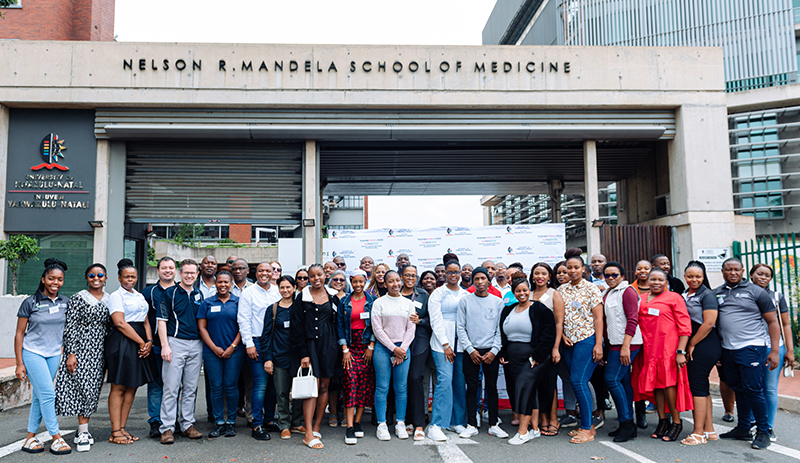The South African Centre, for Digital Language Resources (SADiLaR) at the North-West University (NWU) recently facilitated a successful online dictionary training workshop at the University of KwaZulu-Natal.
During the one-day workshop staff, students, and language practitioners had the opportunity to delve into the world of online dictionaries and discover the numerous benefits they hold for research and learning.
Prof Langa Khumalo, director of SADiLaR, kicked-off the workshop with a talk about the need for an online dictionary.
“The online dictionary platform provides sufficient space for a detailed treatment of lexicographic information. A headword or keyword will have more information that describes it, the context of its usage, and other multimodal information – such as pictures, audio and video – to illustrate its typical usage.
“In this way, online dictionaries have the capacity to provide more informative and detailed information than cannot otherwise be found in a paper dictionary,” he explained.
SADiLaR’s director of operations Juan Steyn and technical manager Dr Friedel Wolff led the teaching part of the workshop, while Rooweither Mabuya, SADiLaR’s digital humanities researcher in isiZulu, assisted during the session.
Their workshop topics comprised a short review of existing online dictionaries (including their own dictionary portal). They explored the different information needs of users, highlighted the importance of the FAIR guiding principles for scientific data management and stewardship, and considered the differences between structured and unstructured data.
Multifunctionality of online dictionaries
According to Dr Wolff, a key advantage of online dictionaries is that they are multifunctional. “When planning a project to build an online dictionary, or when evaluating one, it is useful to consider it as more than just a dictionary. It could also function as software, a website, or a search engine, which might lead to many considerations outside of traditional lexicography, such as search engine optimisation and software usability.”
One of the workshop’s activities required the participants to compile a glossary for mechanical engineering in isiZulu and to consider the necessary steps to achieve that.
“Participants had to identify the various processes of compiling a glossary. Some of the participants took us through the processes of terminology development, which provided an opportunity to show them what can be done with the terminology datasets and term bank they developed. It was a wonderfully engaging experience,” says Rooweither.
The facilitators also pointed participants to new collaboration opportunities that could vastly reduce project costs.
During the feedback session, a recurring theme was the need for more language specialists, clearly identified users, and following through the steps of consultation, verification and standardisation.

SADiLaR at the NWU recently facilitated a successful online dictionary training workshop at the University of KwaZulu-Natal.
